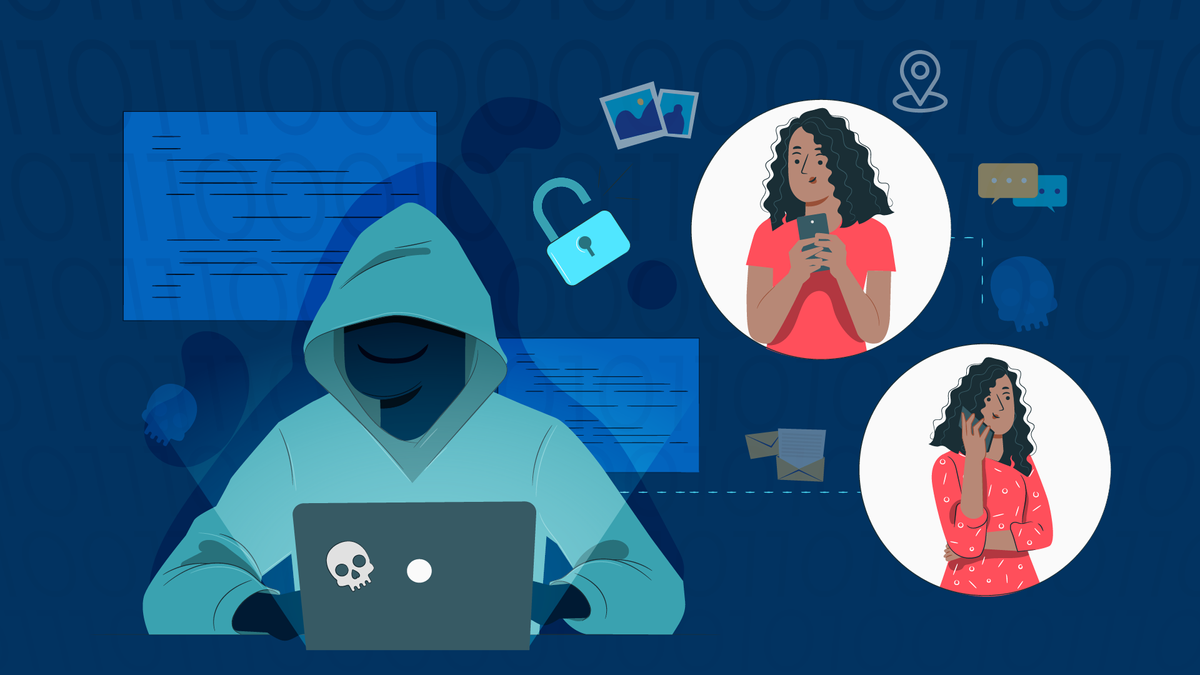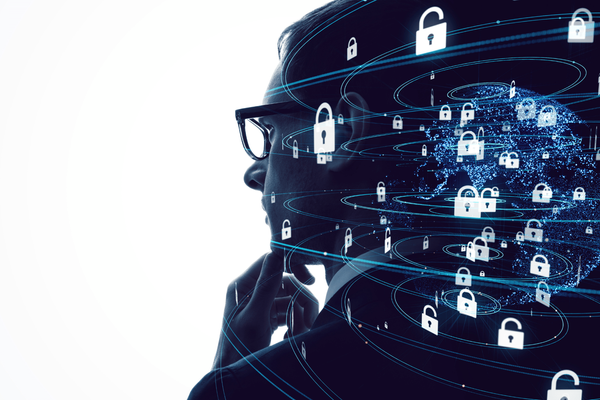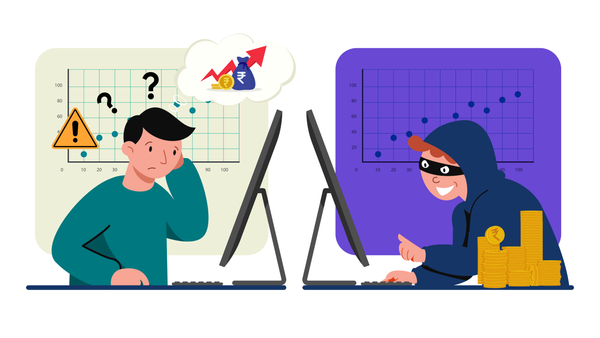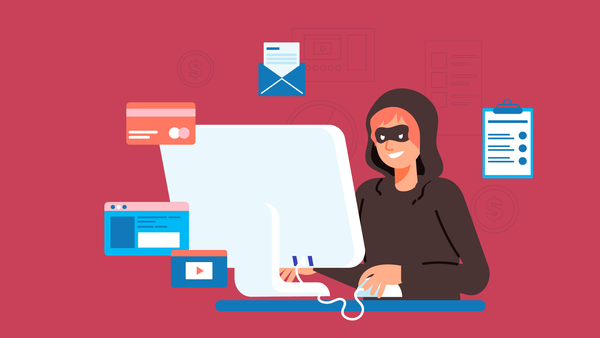How to Deal with Cyberstalking?
Learn how to deal with cyberstalking: avoid interaction, document evidence, report to authorities, secure accounts with strong passwords, and stay alert offline and online.

The Internet has made our lives easier, but there is a darker side to this too. Cybercrime is on the rise as more and more technological advancements have made it easier for any individual to stay completely anonymous and do as they wish without even leaving a trace.
Advanced AI and similar tools have made it possible for anyone to hide behind a mask and target anyone online. The veil between real and fake is thinner than ever. Cyberstalking is one such crime that needs immediate attention and expert help to help victims live normal lives.
What is Cyberstalking?
It is similar to the typical stalking; the only difference is the medium of approach. The cyberstalker uses online mediums to stalk their victim and wreak havoc in their daily life. The stalker’s behavior is fixated and obsessive to the point that they have a constant presence in the victim’s life. Their involvement becomes worse with time if it is left unreported. The victim might stay silent about the crime for fear of embarrassment or judgment.
Cyberstalking can include online surveillance, messaging on their private email/phone number/social media account, hacking their accounts, random observation, and unauthorized access. This is often persistent and emotionally draining for the victim. They must recognize the pattern and report such cyberstalking crimes immediately to avoid further damage. With cyber division help and counseling, they can get back to their daily routine and learn more about safety in the cyber world. In the majority of cyberstalking cases, the perpetrator is someone known to the victim. However, anyone can become a perpetrator or victim in the digital reality, as time and geography don’t cause any hindrance.
How Does Cyberstalking Affect Someone?
Cyberstalking can affect a person physically and emotionally so deeply that it starts affecting their day-to-day life. The victims find it hard to continue their daily routine and socializing. They have reported feeling of distress at all times with a lack of energy to communicate. Dissociative feelings and behavior were common among all the victims; anxiety and feelings of being watched all the time made it worse. In many cases, the victims have also had suicidal thoughts and indulged in substance abuse to cope with the fear/trauma.
People who have been victims of any kind of cybercrime already find it hard to deal with its aftermath. Cyberstalking traumatizes the person on a deeper level, making it harder for them to trust anyone. Even basic tasks feel like a burden. The feelings of depression, less appetite, and panic grow on the victims faster than they can be cured.
During these difficult times, they avoid socializing and often shut themselves off, seeming distant/withdrawn from family and friends. This is a sign to provide them more support than ever and help them cope with these feelings. It is crucial to contact a counselor or mental health expert to help the victims get back on track by facing their fears and taking immediate measures.
Deal With Cyberstalking—Do this first!
When an individual is cyberstalked, there are some important steps to remember in case they need it for themselves or any friend/family. Anyone can be a victim, so we must know more about the measures that can be taken in cyberstalking cases.
- No Interaction with the stalker: The need to avoid any kind of interaction with the stalker. The stalker will be persistent and say/do things to trigger the victim into replying to them, but it is advised to stop any kind of one-on-one interaction. Meeting and confronting the stalker is also a big NO in cyberstalking cases.
- Talk to the police: The victim might not report the situation to the police due to harsh societal judgments and embarrassment. It is, however, very crucial to report such incidents immediately to avoid escalation. The perpetrator will only become more confident and obsessive if the behavior is neglected. The police are experienced and take such cases seriously to safeguard the victim.
- Keep all the evidence: Always keep everything documented either in media or printed form. This way, you have proof of cyberstalking and events as per date. The perpetrator will not be able to make excuses in front of the legal system and go through strict charges for such unsolicited behavior. Both offline and online activity must be recorded to prepare a strong case against the stalker and make sure that they are punished accordingly.
- Ensure proper security: The stalker can try hacking into social media accounts to further harass the victim and cause distress. It is imperative to always choose strong, different passwords for social media and turn on the two-factor verification that will help keep your accounts more secure. The perpetrator will be able to access private information if the password strength is low and it is easy to guess.
Tactics to Avoid Cyberstalking
The above-mentioned steps are primary in the initial stages of cyberstalking. The more alert we are, the better we can manage our digital footprint and handle such situations.
- Stay alert: Make sure to talk to your friends and family if you notice anything unusual in your online activity. Any random unknown message can be the perpetrator who is trying to initiate contact. Never hesitate to let your trusted people know about the situation so that they can help and support you during stressful moments.
- Offline safety: The perpetrator can stalk both online or offline depending on their proximity to your location. They can take drastic steps and start the stalking offline. This is a sign to upgrade house security and always stay aware of your surroundings. Notice and be alert to your daily activities to avoid discrepancies.
- Check online privacy: Read and learn about securing your social media online. Make sure to go through all the privacy settings and enable the options that can keep your location and photos safe. Some settings also block unknown people from messaging you or viewing your profile.
- Know about your digital footprint: Our digital footprint can be traced through advanced tools. The stalker can misuse this to locate the victim and harass them without being noticed. The best way is to reduce the online footprint by not registering on unknown websites and keeping the location tag off from Google and other similar settings, which can help keep things private.
In this advanced generation of cyber life, it is inevitable to stay safe from every threat out there, but the best thing we can do is stay aware. This can gradually lower the chances of such occurrences, not fully eliminating the threat but controlling it to some extent.





